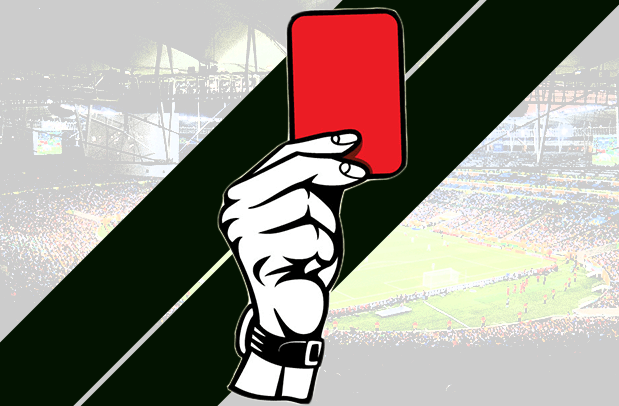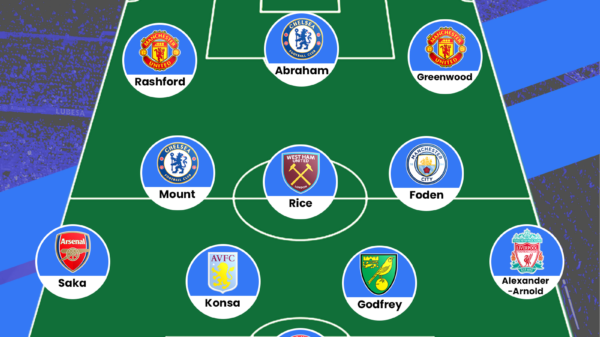The increase of technology in football is a subject that has been debated heavily over the years and with the successful implementation of goal line technology, it has reared its head once again. Harry Montague has his say on the matter.
With another weekend of controversy surrounding refereeing performances, certain decisions made, mistakes by linesmen, mistakes that change a game, the question of what should be done about this lingers. More importantly the question of ‘Should a change be made?’
Now mistakes are part and parcel in football. Players, managers, officials, they all make mistakes regularly. But in this day and age, where the technology is available to aid officials, that question is always going to be raised. You only have to pick up a newspaper where it will show what the Premier League table would look like if you corrected officials’ mistakes.
These mistakes tend to even themselves out generally, not over a game, but does tend to over a season. You have to in a way embrace the human error aspect of the game. You could have a dozen referees and several linesmen and they will still get decisions wrong as some are simply too close to call, even after you have seen it slowed down a few times on TV. An example that hits closer to home with myself, being Arsenal’s 49 game unbeaten run. In their 7th game coming up against Portsmouth, finding themselves 1-0 down to a Teddy Sheringham goal. The game finished 1-1 after Henry’s penalty, won by Pires after minimal, if any contact. You then go to the game where the run ended, at Old Trafford. Mike Riley failed to send off Rio Ferdinand, Gary Neville, and topped it off by awarding a penalty to United after a Rooney dive. As the saying goes, you take the rough with the smooth.
We have seen the benefits of goal line technology since its introduction. In fact the only controversy we have had regarding it has been the fact that it is not being used in the Champions League. With video technology trials just around the corner we could eventually see referees being able to have a second look, or fellow officials having a closer look at ‘game changing’ incidents which is said to be; goals scored, penalties, red cards and mistaken identity.
I do understand people’s worry that the game may change, may become slower with the introduction of more technology and the worry of too much of it. Plus, there are added worries with technology that might not have been considered before. Making sure there are many managed IT services out there available to keep new software in check is crucial to technology is a popular method of decision making. The end users just get to see the front end of software, therefore cannot always understand the effort that goes into providing them a seamless experience. These businesses, in order to keep their operations running smoothly, might even need to consult professionals who can educate them about their enterprise planning needs. For a business to reach the maximum level of efficiency, it needs to constantly transform. And business transformation starts long before an ERP solution is installed and continues long after implementation.
I find that you only start to bellow about introducing technology when a decision has gone against your team. Some people have mentioned what the NFL do with their ‘video goal judge’ who basically reviews any decisions which aren’t clear. However American football is very much a stop start sport, whereas football isn’t, which is what people love. Therefore the fear that people have over it is understandable. What I cannot comprehend is the people who to some extent want bad decisions to be made to make their vocal point of a match. It was said to me that people wouldn’t have much to talk about if extra technology is added. Talk about the game. Talk about the goals, or the lack of goals. You can discuss football without talking about how bad the officials were, and I for one prefer those conversations.
Clarification or adjustments made to existing rules
There are two rules which I feel could be more consistent or even changed in today’s game. Offside and handball.
The rule for offside is clear, but implementing it isn’t so. It states that you can be in an offside position, but if you are not interfering with play, and your team mate has the ball who wasn’t offside then the game goes on. Officials interpret not interfering to be not touching the ball, blocking a defender and blocking the goalkeeper’s view. I just think that we have over complicated the rule. If you are on the pitch, I don’t care where you are, you are interfering with play. If a defender is running back after a ball, and a player is standing in an offside position, but doesn’t touch the ball, or get in the way of the defender or goalkeeper, he is still interfering. That offside player went through the defender’s thought of action and is therefore interfering. Even if a player is limping back to try and get onside or is laying down, as harsh as it sounds, he still goes through the defender’s mind. Is he going to get up and make a run into the box or hang at the edge of the box for a cross. Whatever the thought, he is interfering so should be offside. We give linesmen a lot of criticism, but have a rule which is not necessary. If you are offside, then it is offside.
The problem with the handball rule is consistency. A penalty was given to Tottenham in the last few minutes of an FA Cup tie against Leicester which saw the game finish 2-2. The penalty for handball raised questions to what is actually handball. You will get more handball fouls outside of the penalty box than what you will in it, which leads back to consistency. Pundits suggested that the rule should be ‘ any time it hits your hand it should be a foul’ to make it clear and consistent. The problem you have here is you will get people in the box just trying to flick the ball up to your hand and the rule will state it’s a penalty. You then go to if the player meant to hand ball it, but no player means to handle the ball in his own penalty area. Howard Webb was asked a question about what he looked for and what referee’s should look for. He stated we should look for if the player is putting his hands in an unnatural position to gain an unfair advantage, regardless of moving the hand to the ball and regardless of distance the ball has travelled. After all, you could run with your arms out wide to the ball, you haven’t moved your hand to the ball but have an unfair advantage. Also if you are running your hands will naturally move up and down, you can’t run with them by your side, but if it does hit your hand while running and yes, your hand moved to the ball, it still doesn’t mean it’s a foul if it naturally came up and struck the ball while running. I will rarely say this but thank you Mr Webb.
Personally I don’t feel that the game should be packed with technology so every decision can be challenged, reviewed and altered, nor do I think the people in charge will change it to that. But let’s make it easier for the officials to do their job at least. Make the offside rule simple. A small change to the game that makes it more consistent, as consistency, for me, is the officials’ biggest problem. If the trials going ahead to introduce more technology are a success, let’s take it one step at a time, one change at a time. I always thought about line technology around the whole pitch, instead of just the goal line. If this was implemented, and used similarly to the goal line, then it wouldn’t slow the game down. I am not against video technology for decisions, but not for any old decisions. The idea of challenging a decision like in tennis has been mentioned but I only believe it should be used for key decisions (red cards, goals and penalties) if the referee himself wants to. The speed of the game is what makes it so exciting, let’s not lose that.
Written by Harry Montague
- Debate: Is diving justified? - April 7, 2016
- Technology in Football: Should a change be made? - January 27, 2016
- Brian Clough: The greatest manager England never had - November 26, 2015




























































